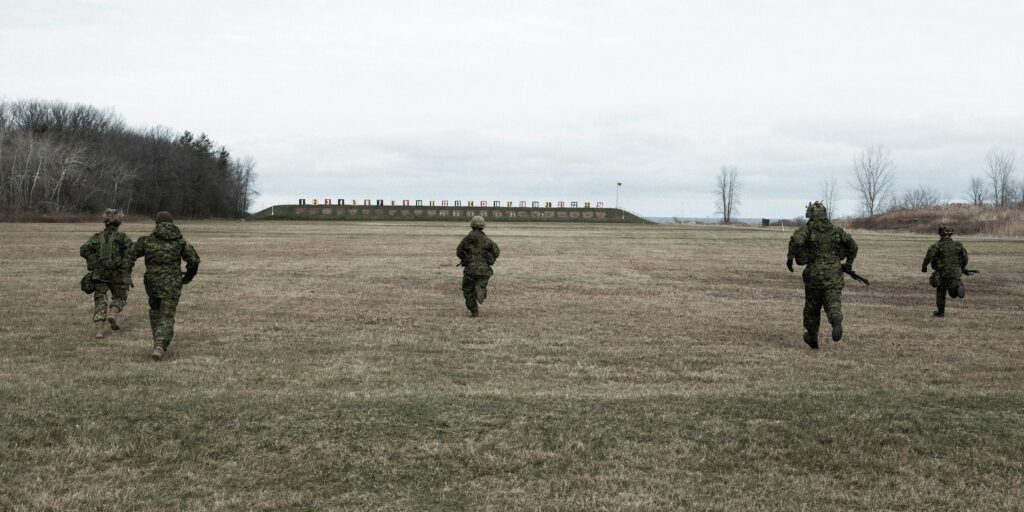Former U.S. President Donald Trump announced that he has spoken with Russian President Vladimir Putin to start ceasefire talks in Ukraine. Trump indicated that Ukraine might have to give up land and abandon its NATO ambitions to reach an agreement. His comments signal a major shift in the U.S. stance on the war, raising concerns among European allies and Ukrainian officials.
Trump Pushes for Peace, Signals Shift in U.S. Policy
Trump revealed that he had a long and productive phone call with Putin. Both leaders agreed to have their teams start immediate negotiations. He confirmed that they also plan to visit each other’s countries, with their first meeting expected in Saudi Arabia. The Kremlin later verified the call and the mutual invitations, marking a shift in U.S.-Russia relations.
Speaking at a press event, Trump expressed doubt that Ukraine could reclaim much of the land it has lost. He argued that Russia has fought hard for the territories it now controls and that his main priority is ending the war, not deciding which country owns what.
“The war must end. Ukraine is not going to win back everything. That’s the reality,” Trump said. “We need peace, and NATO expansion is not the way to get there.”
Trump also suggested that Ukraine dropping its NATO bid could be key to securing a deal. His statement contrasts sharply with previous U.S. support for Ukraine’s long-term security through NATO membership.
Defense Secretary Pete Hegseth Reinforces New Strategy
U.S. Secretary of Defense Pete Hegseth echoed Trump’s message during his visit to Brussels. He stated that Ukraine must accept that it cannot return to its pre-2014 borders. He warned that prolonging the war in hopes of reclaiming lost land would only bring more suffering.
Hegseth also ruled out NATO membership for Ukraine, arguing that European and non-European troops should handle security matters instead of direct U.S. involvement. His remarks come as the U.S. reviews its global military presence, shifting focus toward China and the Indo-Pacific region.
The shift in U.S. strategy could mean less military aid for Ukraine in the long run. While Washington has not yet announced any immediate cuts, ongoing support may come with new conditions.
Ukraine and European Allies Alarmed by Negotiations
Ukraine and several European countries reacted with concern to the rapid push for ceasefire talks. Many fear that Trump may concede too much to Putin in order to secure a quick deal.
Ukrainian President Volodymyr Zelenskyy has publicly backed negotiations, stating that “no one wants peace more than Ukraine.” However, some Ukrainian officials worry that Trump’s position weakens Ukraine’s ability to negotiate fair terms.
European leaders have also expressed frustration. France and Germany have called for a more balanced approach, arguing that Europe should have a direct role in negotiations. A senior European diplomat criticized Trump’s stance as a premature surrender, warning that giving in now could encourage Putin to demand even more.
“If European troops are expected to enforce a ceasefire, we must be involved in the decision-making process,” said one EU official.
The Role of Resources in Future U.S. Support
Trump’s administration has linked future U.S. military aid to Ukraine with access to rare earth minerals. These minerals are essential for industries like energy and technology. Reports suggest that U.S.-Ukraine negotiations now include a possible resource partnership in exchange for continued support.
This potential deal raises new questions. Some critics argue that using military aid as leverage for economic gain weakens America’s commitment to Ukraine. Others believe that securing access to strategic resources is a smart move for the U.S. economy.
What’s Next for Ukraine?
The road ahead remains uncertain. While the ceasefire talks mark a potential turning point, experts are skeptical about a real breakthrough. Russia continues to demand further territorial concessions and a neutral status for Ukraine—terms that mirror those made before its full-scale invasion in 2021.
Meanwhile, European leaders worry that the U.S. is prioritizing a quick resolution over Ukraine’s long-term security. Whether Ukraine and its allies can influence the negotiations remains unclear as Trump and Putin move forward with their plans.
For more updates on world politics, visit Newyork Mirror.


